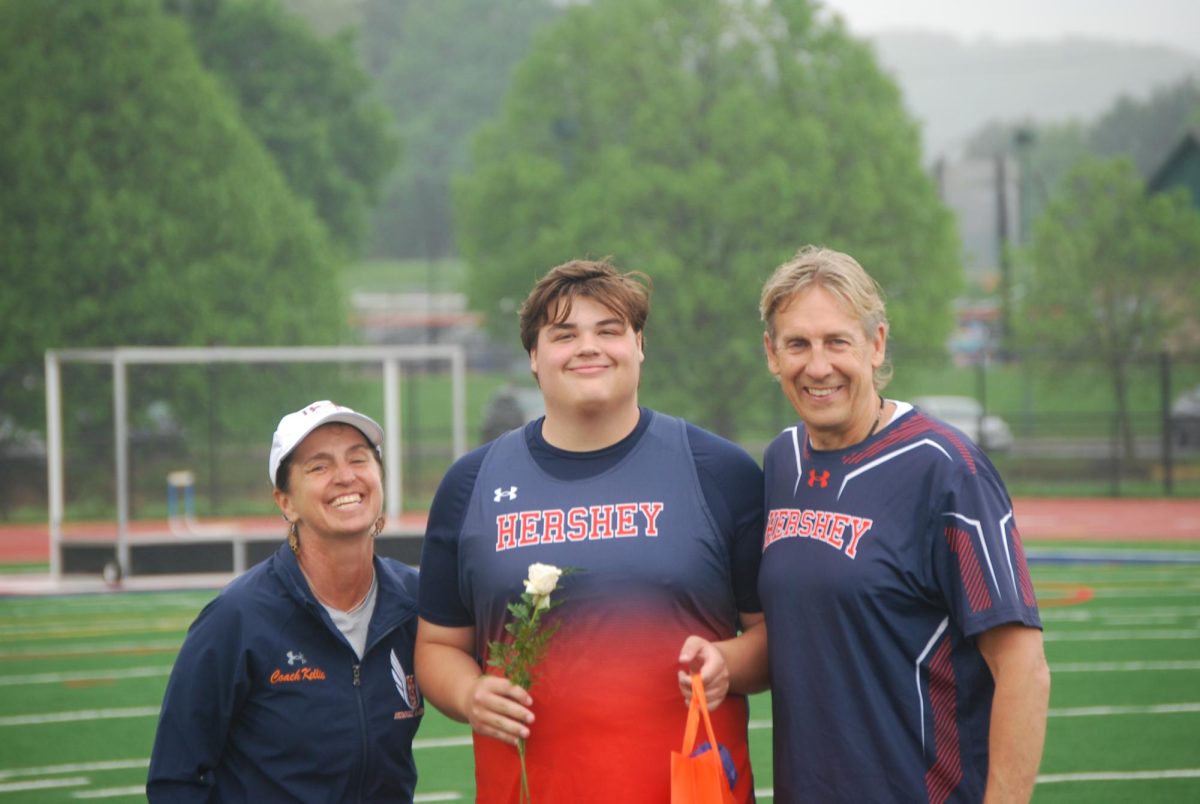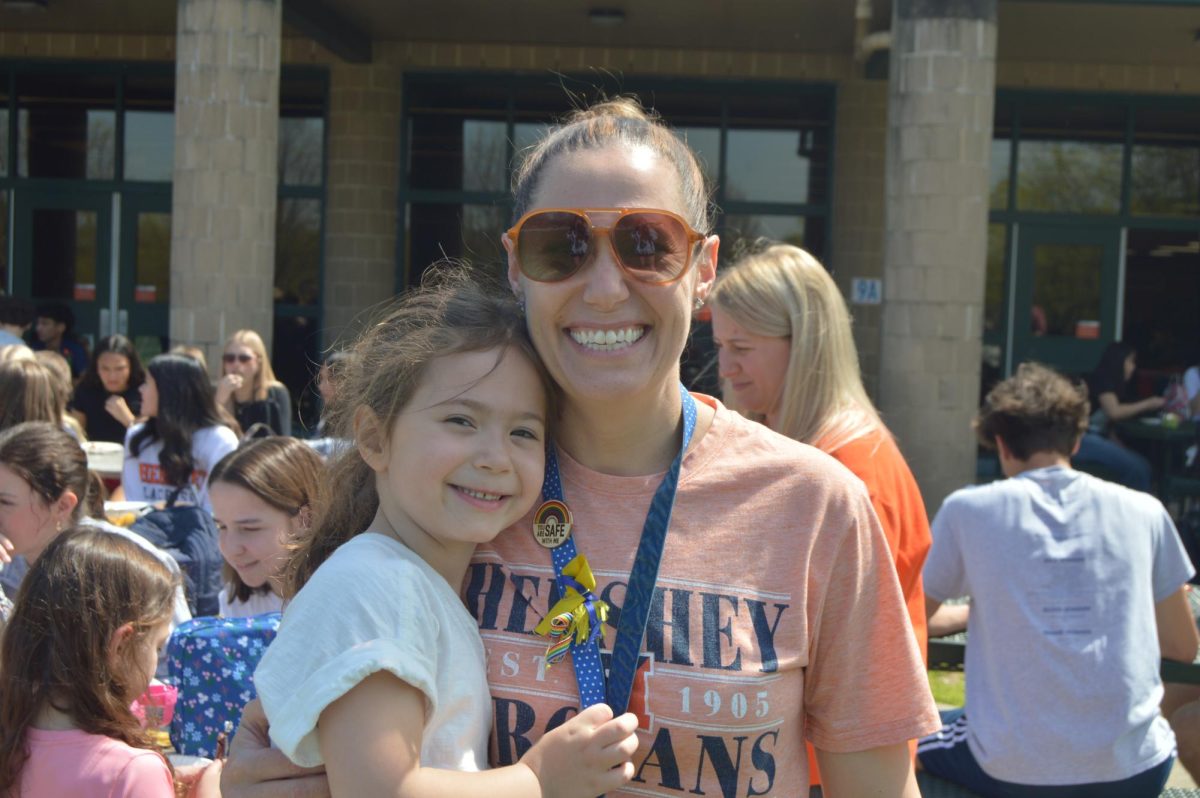By: Lydia Gould
Jim Gould was running. Running away from his current home to his “real home.” He wanted to get as far away from the institution that had been controlling his life for the past two weeks.
Hitchhiking all the way from Hershey to Williamsport, he eventually made it back into the arms of his crippled mother and underprivileged sisters. His mother fed him and then dropped him back off at the Milton Hershey School. He felt unwanted and could not understand why his mother so badly wanted to get rid of him.
According to Gould, it wasn’t until his senior year of high school that he realized how his mother’s decision to keep him in the school was the best thing she could’ve done for him.
The Milton Hershey School has affected many men and women over the years. By providing underprivileged students with a place to live, a school to attend, and a loving family, the school has shaped many individuals into the people they are today. While the school is not the small dairy farm it used to be and has undergone a multitude of changes, any student, whether they had graduated in 1946 or 2015, can agree that the mission of the school has remained the same.
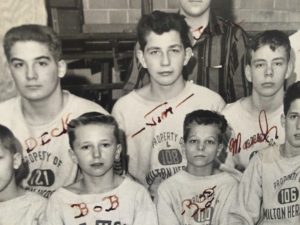
The Milton Hershey School (formally the Hershey Industrial School) was started by Milton S. Hershey and his wife Catherine in 1909. Milton Hershey and his wife were not able to have any children of their own, so they started the school to give back to all the orphaned boys who did not have a family.
According to a documentary by Kim Gormley, Milton Hershey had once said, “I have no heirs, that is, no children, so I decided to make the orphan boys of the United States my heirs.”
With his vision set, Milton Hershey put sixty million dollars in a trust for the orphans, and the school was created on a dairy farm in Hershey, Pennsylvania.
At the school, according to the documentary, Hershey stated, “Most of them will have better chances of character building and education. Perhaps they don’t have the chance to make as much money as some individuals have made, but they will lead happier lives.”
One student who was greatly affected by these developments was Jim Gould.
According to Gould, his life had never been easy. “I was as poor as a church mouse – my father died when I was 11 weeks old. My mother was crippled and could not work, and she had three small children to take care of,” said Gould.
Then Gould said he enrolled in the school in 1957 and was placed in a student home. There he was put to work in the house and in the barn. Living in the student home was not always easy, according to Gould. He said, “We were a family. We stuck together.”
Throughout his years in the student homes, he grew from being resentful to being respectful. His senior year was a turning point. “As a senior, I had to get straight A’s to qualify for college funding because my earlier years were spent having fun and getting by.”
Gould eventually went to college and worked hard to provide for himself and his family. Overall he said The Milton Hershey School changed his life in many ways. “I can only imagine what my life would be like had I stayed home and been raised in the same atmosphere (as my siblings),” said Gould. “I feel guilty that I was so fortunate, and my sisters never had the same opportunities as I did.”
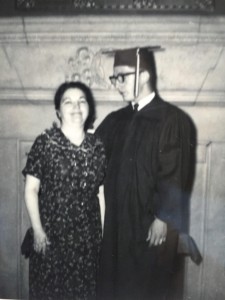
Although Gould’s sisters were not eligible for the school at the time he went, the year 1976 brought about two big changes to the school: girls were now eligable to enroll, and social orphans were welcome.
A social orphan can be defined as a child who has no adults looking after it, even though one or more parents may still be alive. These children, according to Gould, had parents who were drug addicts, alcoholics, etc. Now with the acceptance of these social orphans and girls, the Milton Hershey School could work to help more children all over the country.
One girl in particular was Chris Cook. Her father had passed away when Cook was four, and she entered the school in 1977. Cook was among the first class of females at the school. Her home life wasn’t as unfortunate as some of the students at the school.
“I lived in a wonderful neighborhood in Philly with a wonderful family,” said Cook.
Her brother was enrolled in the school prior to her, and she joined her brother her tenth grade. While some might think there was prejudice towards girls, Cook said that wasn’t the case.
“There were two girls in every class, but it wasn’t strange or uncomfortable,” she said. “We kept everything equal.”
Cook even notes that while the boys thought that the girls were treated “like princesses” that wasn’t at all the case.
“Milking cows in zero degree weather wasn’t fun” she said. “We just got conditioner and the boys didn’t.”
Cook eventually graduated from the school in 1977 along with thirteen other girls. They were the first girls to ever graduate from the Milton Hershey School.
While Cook says that being the first female graduate wasn’t that big of a deal, she was grateful for the opportunities she was given and the friends that she made.
“School provided me with many opportunities” she said. “I wish it came along sooner.”
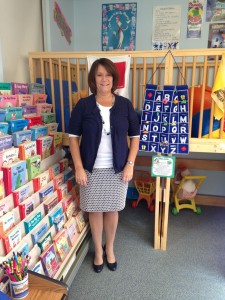
Cook eventually went on to get a degree in elementary education from West Chester University. Currently, she is back at the Milton Hershey School teaching kindergarten. Even though she thought teaching at the Milton Hershey School “wasn’t the right path for her”, she’s glad she made the decision to do so.
After admitting the thirteen girls to MHS in 1977, fifty percent of all the school’s students are female. Even though there is no longer a farm for the students to take care of, according to Cook, all of the females are still treated the same as the males.
Many of the past students of the Milton Hershey School are still involved with the school today helping out with current students and organizing events. The alumni association does a great amount of work helping out with the school.
Past alumni events have included golf outings, clothing sales, Christmas parties, etc. Someone who has been serving in the Harrisburg chapter of the alumni association for over forty years has been Milton Hershey School graduate, Horace Flynn.
Flynn joined the school (at the time still named the Hershey Industrial School) in 1936. At the time the school was still run by Milton Hershey, and the students were all caucasian males who lost one or more parents. The students at the school also had many daily chores they had to complete in the barn and in the student homes.
“It was my responsibility to take care of the furnace and also the coal heated hot water” he said. “When I was older I milked three cows every morning and evening.”
Flynn also didn’t have it easy at home. He lost his father to a coal mining accident, and he heard about the Hershey Industrial School because of his cousin who went there.
“My mother was left with two girls and two boys to raise at the age of thirty eight,” he said. “I was a sickly child.”
While at the school, Flynn also had some difficult times. He said that his fourth and fifth grade years were among his most difficult moments at the school.
“I had some nasty house parents”, he said, “ My mother said that on my return from vacation I would tremble as we got closer to the school.”
However, while there were some strenuous moments, Flynn says that some of his greatest life lessons were learned at Hershey Industrial School.
“I think I have become a more caring and responsible person” he said.
While life at the Hershey Industrial School was very different and included lots of hard labor, Flynn says that the education he received and the life lessons he was taught was paramount in his current success.
He said, “The education and training (at the school) aided me well throughout my entire life.”
Flynn eventually graduated in 1946 and went on to serve in the Air Force and Navy before eventually retiring. Currently, Flynn is now a very involved member of the alumni association at the school.
He has been the chapter secretary for the last forty years, has became alumni grandfather to three student home kids, and has helped with enrollment, homecoming, golf for students, and many other activities.
Flynn has had the chance to witness the various changes that have occurred throughout the years. Of course, according to Flynn the school has modernized with the time.
He said, “I think the school is doing the same job but with more modern technology in this ever-changing world.”
Another change that was implemented in 2007 was the transitional living houses. Transitional living is for seniors at the Milton Hershey School, and they get to experience what it is like to live basically on their own and do everything themselves.
A student who is currently in the transitional living houses, Ethan Stratton, a senior at the Milton Hershey School.
Ethan is a social orphan who joined the school because of financial issues at home as well as his dad leaving when he was young.
“My childhood was rough,” he said. “I never had the newest fashion or shoes, and I was a kid that really had no friends and kept to myself really.”
However, once in the school, Stratton was immersed in the kindness that the school offered. He said that his student home he was in was a very caring one.
“The student home never let you fail and was always there for you no matter what,” he said.
Even though he loved the student homes, Stratton was placed in a transitional living unit for his senior year. In the transitional living homes, Stratton has to do many things for himself such as buy his own food and do his own laundry.
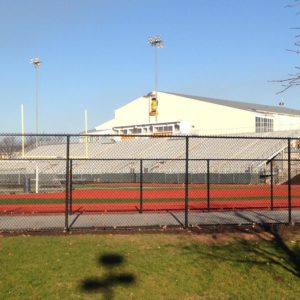
It’s a big change for the seniors and according to Stratton. “I would rather be in the student home.”
Even though transitional living is tough, Stratton said that Milton Hershey School has changed his life in many ways.
“It has made me a better man and made me grow up from how I was,” he said. “It also took me off the streets so I wasn’t selling drugs or ending up in jail.”
The Milton Hershey School has shaped many lives over the years in more ways than one. Something that the school has given the students is something they never thought they’d ever have: a real family.
The family aspect of Milton Hershey has been what impacted many of the students. Between houseparents and teachers and other students, the school has provided every student with a hand to hold or a shoulder to cry on.
Stratton said, “Everyone is so nice and caring about you and will take you under their wing so you can learn, and they will treat you as their own kid or family member.”
Over the years, many changes have happened to the school. However, every current and former student can agree on one thing: the original mission is still the same.
No one knows what is to come of the Milton Hershey School in the future. The school will continue to evolve with the times. Nonetheless, the Milton Hershey School will continue to shape the lives of the underprivileged youth of America just as it has in years past.
Milton Hershey’s legacy lives on to this day. His school continues to shape lives, and just as Gormley stated in her documentary, “Milton Hershey’s legacy is more than just a chocolate bar.”

